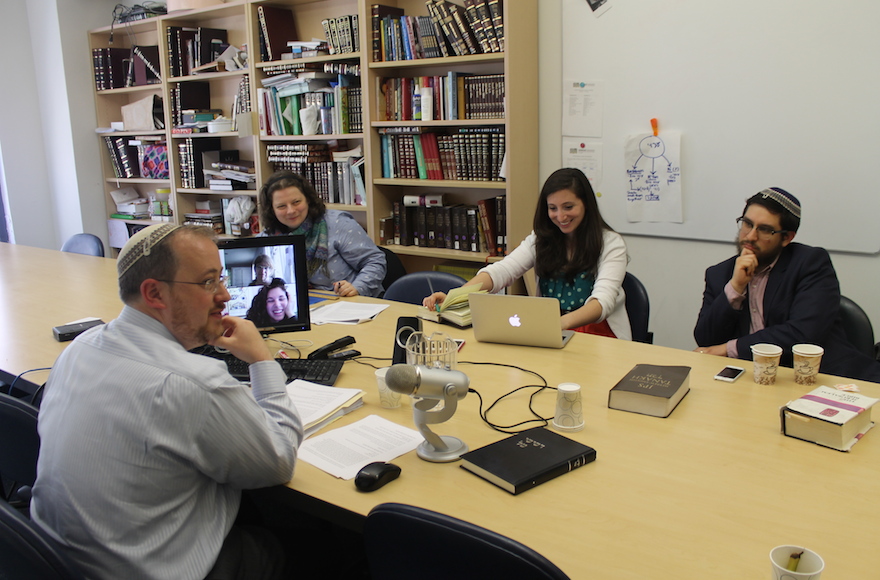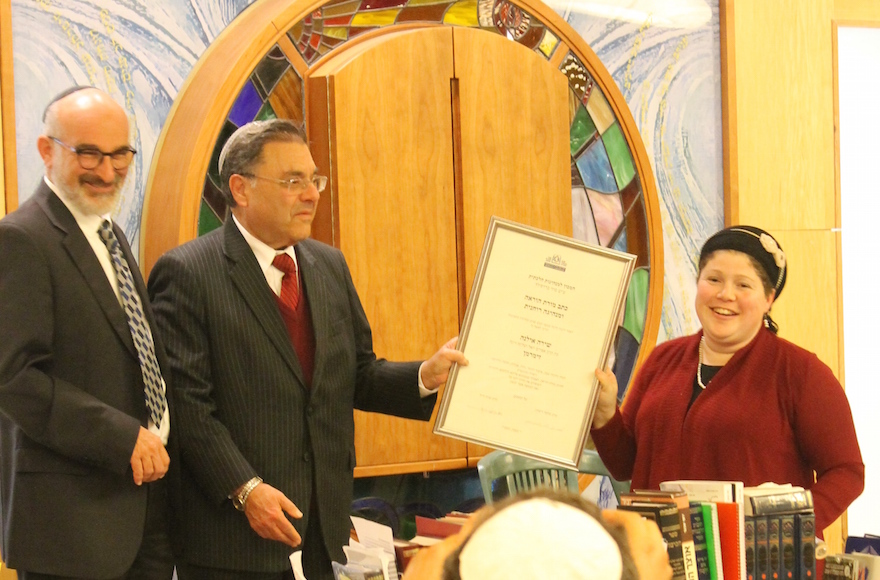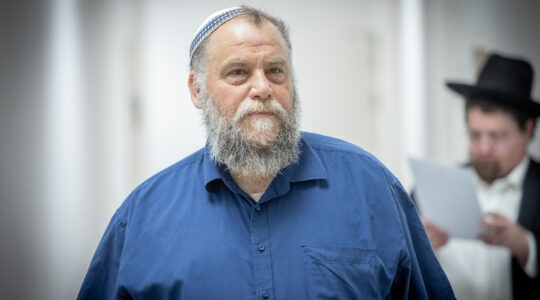(JTA) — Ever since Rabbi Avi Weiss began training female clergy and appointing them to leadership positions, he’s been mired in controversy.
Graduates of his women’s seminary in Riverdale, New York, have been banned from serving as clergy or in a position of spiritual authority by two umbrella Modern Orthodox organizations. Weiss left the Orthodox Rabbinical Council of America in protest of its policies. Rabbis to his right frequently question his Orthodox credentials.
What if a rabbi in Israel did something similar? After all, Israel has a haredi Orthodox Chief Rabbinate, a growing haredi population and government policies that discriminate against liberal Jewish movements. The backlash would be even worse, right?
Wrong. Actually, Israel might be the friendliest environment for Orthodox women seeking something on par with rabbinic ordination. The country has a parallel to Weiss’ organization — an educational network that advances Orthodox women headed by a prominent, outspoken liberal Orthodox rabbi — and it’s enjoyed greater acceptance and had less backlash than the efforts by Weiss.
Rabbi Shlomo Riskin, the charismatic Modern Orthodox rabbi from New York who founded the West Bank settlement of Efrat, has been giving Orthodox women the equivalent of rabbinic training for a decade. His Susi Bradfield Women’s Institute of Halakhic Leadership, founded in 2007, offers women the same curriculum as Orthodox Israeli men studying for rabbinical ordination.
After five years of study, the women take the same tests as the men and, Riskin told JTA, graduate with the ability to “teach and direct Jewish law, just like a rabbi.” It’s not that different from Weiss’ seminary, Yeshivat Maharat, whose four-year curriculum gives women the “necessary skills to be confident and compelling spiritual leaders in the Jewish community,” according to its website.
“Studying Torah and developing leadership within Torah is part of every human being,” Riskin told JTA. “Men and women equally are created in God’s image, and one of the miracles of our generation is Torah learning for women.”
But while the Orthodox Union and RCA have issued rulings against Maharat graduates, the Bradfield Institute received a vote of confidence from the Modern Orthodox establishment last week: Rabbi Kenneth Brander, a vice president of Yeshiva University, the flagship Modern Orthodox school, will be replacing Riskin next year after he retires.
Brander will become president of Ohr Torah Stone, the network of educational institutions that Riskin founded and leads. Along with the women’s seminary, the network includes primary and high schools, academies for young adults and higher education for men. It also offers a program to train women to be advocates in courts of Jewish law.
Riskin, 77, will remain involved with the organization in an unofficial capacity and remain chief rabbi of Efrat.

Yeshivat Maharat’s four-year curriculum gives women the ‘necessary skills to be confident and compelling spiritual leaders in the Jewish community.’ (Uriel Heilman)
Brander has a history of advancing Orthodox women: He led the Graduate Program of Advanced Talmudic Studies and Biblical Interpretation for Women at Y.U., where he serves as vice president for university and community life. Before arriving at Y.U., he was rabbi of the Boca Raton Synagogue, a large Modern Orthodox congregation in South Florida.
“Engaging women to study and engage in leadership roles on the highest level is always something that’s excited me,” Brander told JTA. “It does us proud and empowers us when we’re able to allow them to play leadership roles.”
Graduates of Bradfield are called “morat horaah,” which Riskin roughly translates to “Jewish legal leader.” The term is similar to the title given to graduates of Weiss’ seminary — “maharat,” an acronym for “Jewish legal, spiritual and Torah leader.” Yeshivat Maharat graduates have gone on to serve in synagogues and schools. Bradfield graduates have likewise served as teachers and spiritual leaders.
Brander and Riskin both declined to comment directly on Yeshivat Maharat. But Riskin suggested that because Orthodoxy is so dominant in Israeli religious life, there’s more space to subdivide into groups and innovate. While Conservative and Reform Judaism are the largest Jewish denominations in the United States, only a small number of Israelis identify with them. The vast majority of Israeli religious Jews identify with some form of Orthodoxy.
“In America there are problems in assimilation,” Riskin said, adding that American Orthodox leaders “are afraid of any kind of change that might lead to assimilation, the specter of the Conservative woman rabbi. In Israel, we don’t have the challenge of Conservative and Reform. We don’t have the challenge of intermarriage and assimilation.”
Riskin has also been less of a publicly controversial figure than Weiss. Before founding Maharat, Weiss was known as a confrontational activist who would chain himself to public buildings and get arrested for protesting on behalf of causes like Soviet Jewry and keeping a church off the grounds of Auschwitz. While graduates of Maharat eschew the title “rabbi,” Weiss ordained his first graduate, Sara Hurwitz, as “rabba.” And when Weiss left the RCA in 2015, it was his own decision, made in protest. His men’s seminary, Yeshivat Hovevei Torah, is seen in part as a liberal challenge to Yeshiva University’s rabbinical school.
By contrast, Riskin has tried to advance his vision of Orthodoxy while avoiding ruffling feathers. The Israeli Chief Rabbinate did threaten to force him out of his chief rabbi position in 2015 before backing down.
Brander says Riskin succeeded in coalescing some Israeli Orthodox leaders around advanced women’s education. Rabbi David Stav, a prominent Israeli Modern Orthodox rabbi who leans liberal, became co-chancellor of Ohr Torah Stone in 2015 and will remain in a leadership role.
“What Rabbi Riskin and Ohr Torah Stone have done is create a consensus among a community on the responsibility to educate women on the highest level,” Brander said, adding that the consensus has created space for “women to play stronger leadership roles in the Jewish community within the parameters of Jewish law.”
Weiss praised Brander and told JTA that Riskin “will be viewed in history as the greatest Modern Orthodox leader of the latter half of the 20th century. He did not comment directly on the contrast between the two schools.
But Orthodox women’s advocates in the U.S. say Brander’s appointment helps them, too. Hurwitz said “there are many, many similarities” between Maharat and Bradfield. And Sharon Weiss-Greenberg, the executive director of the Jewish Orthodox Feminist Alliance, said that despite their differences, the Modern Orthodox communities in Israel and the U.S. influence each other.
“What the O.U. has done and RCA has tried to do is separate the politics of American Jews from what’s going on in Israel, and you can’t do that,” she said.






